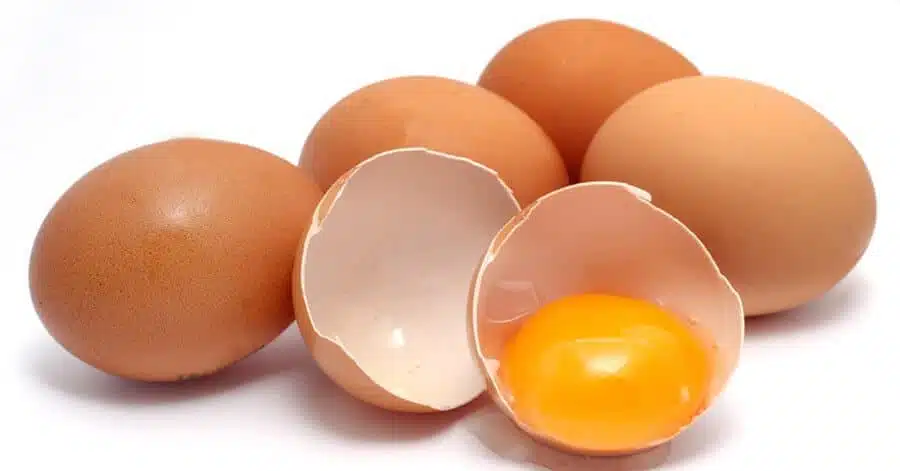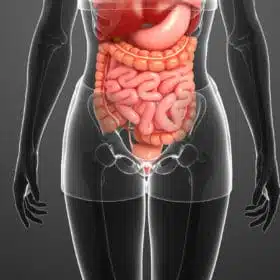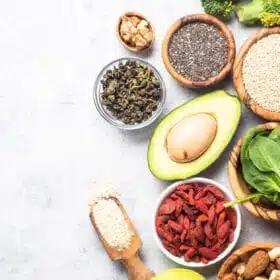Basically Eggs is one of the best foods you could wish for, because in addition to high-quality protein and a comparatively high energy density, it contains a wealth of valuable micronutrients such as vitamin D, which can only be found in a few foods. In terms of protein quality, the egg is also beyond reproach, as it is not for nothing that the protein obtained from the egg is still considered the reference for determining the biological value of various protein-rich foods. However, instead of treating the egg according to its benefits, there are various prejudices in society against this food, which are based on research results from the last century that have since been revised. This misinformation is due to findings from studies carried out over forty years ago that linked egg consumption with high blood cholesterol levels and the associated negative effects on the body. Even the realization that the consumption of eggs does not lead to a negative shift in blood cholesterol concentrations has hardly changed the fact that eggs are still considered by many to be a bad food. In the following, we would therefore like to address the eight most important questions about eggs in order to provide some clarity.
Question 1 - Why should I eat eggs?
Why you should eat eggs is actually obvious, because eggs are pretty much the highest quality source of protein that has been identified in nutrition and sports science to date. In plain language, this means that the protein from eggs can be very effectively converted into the body's own proteins by the body, with very little loss. Incidentally, this applies not only to the protein from the egg white, but also to the protein from the yolk. In general, you should always make sure that the protein you consume is of the highest possible quality, as this is the only way your body can really use it effectively to repair cells, synthesize hormones, prohormones and enzymes and build new muscles.
Question 2 - But aren't eggs actually unhealthy?
As already mentioned at the beginning, eggs are by no means unhealthy, but an excellent source of high-quality macro and micronutrients. Generally speaking, it is a mistake to simply divide foods into good foods and bad foods in a monochrome world view, as such a classification ignores all nuances and cannot do justice to individual nutritional needs in the slightest. Instead, you should simply ask yourself what you expect from each individual food you want to use, i.e. which macro or micronutrients it should provide you with. Of course, this in turn requires you to take a closer look at the subject of food and nutrition in order to understand, among other things, how certain foods affect your body. Of course, this involves a certain amount of effort. But if you want to achieve something, you also have to do something for the expected return and cannot simply rely on a simple black and white view of the world.
Question 3 - Is the egg white healthier than the egg yolk?
Once again, we find ourselves in a place that is brimming with black-and-white painting based on long-outdated assumptions. To make a long story short: No, egg whites are not healthier than egg yolks. Why should it be? Because the reason why egg yolks are often condemned concerns not only the cholesterol but also the fat they contain, which, as we know, is also not unhealthy per se, but is urgently needed by our organism. You should also know that most micronutrients, such as selenium and magnesium, are primarily contained in egg yolks. While magnesium helps your body to ensure neuronal functionality, sufficient consumption of selenium protects against cell damage. So if you're going to eat eggs, please eat the yolks too.
Question 4 - What is in an egg yolk?
Just like the egg white, the egg yolk contains water and mainly high-quality proteins, which are also characterized by a complete amino acid profile. In addition, the egg yolk contains important saturated and unsaturated fatty acids, which are required by our organism both as an energy source and for the synthesis of hormones and enzymes. Apart from this, egg yolks are a rich reservoir of micronutrients. These include vitamins A and D as well as the trace elements zinc and iron, which play an important role in your blood's ability to transport oxygen.
Question 5 - But isn't all the cholesterol in egg yolks unhealthy?
There is good news to report at this point, as the cholesterol contained in egg yolks is not nearly as harmful to the body as countless studies in recent decades have tried to suggest. Although egg yolks do contain cholesterol without being asked, the details show that the proportion of LDL and HDL cholesterol is largely balanced, which means that at least this aspect does not have any serious health effects on the body. In fact, recent scientific studies have shown that the cholesterol level in the blood is not primarily determined by the cholesterol ingested directly from food. On the contrary, a large part of the cholesterol concentration in the blood is based on the activity of the liver. Astonishingly, a Harvard University study suggests that eating eggs can even reduce the risk of cardiovascular disease. The bottom line is that you don't need to worry about the cholesterol contained in egg yolks.
Question 6 - How many eggs can I eat a day?
In principle, there is no specific number of eggs you should eat per day. Why should there be? After all, you don't explicitly think about how many slices of bread, how many apples or bananas you can eat per day. So as long as you don't have any health problems such as high blood pressure or an already alarmingly high blood cholesterol level, you can eat as many eggs as your calorie balance allows. However, if you suffer from the aforementioned health problems, it makes sense to limit yourself to one or two eggs a day so as not to exaggerate the risks involved.
Question 7 - And what if I don't like eggs?
If you don't like eggs or you don't want to consume animal products due to a vegan lifestyle, you don't have to or can't eat eggs - it's as simple as that. However, this does not mean that you have to do without high-quality protein sources, as there are also plant-based alternatives such as chickpeas, which are characterized by an acceptable protein quality. Other alternatives include lentils, beans, nuts and tofu. Nuts in particular also have the advantage that they are rich in healthy fats.
Question 8 - What is the best way to eat eggs?
The best way to eat or prepare eggs depends entirely on your personal preferences. However, you have the advantage that eggs are an extremely versatile food that can be used hard-boiled, scrambled, as an omelette or in a salad. So it's entirely up to you and your creativity in the kitchen how you use eggs. This does not have the slightest influence on the quality of the nutrients they contain. One final tip, however - don't follow Rocky Balboa's example and don't eat a raw egg during training. Your gastrointestinal tract will thank you.




